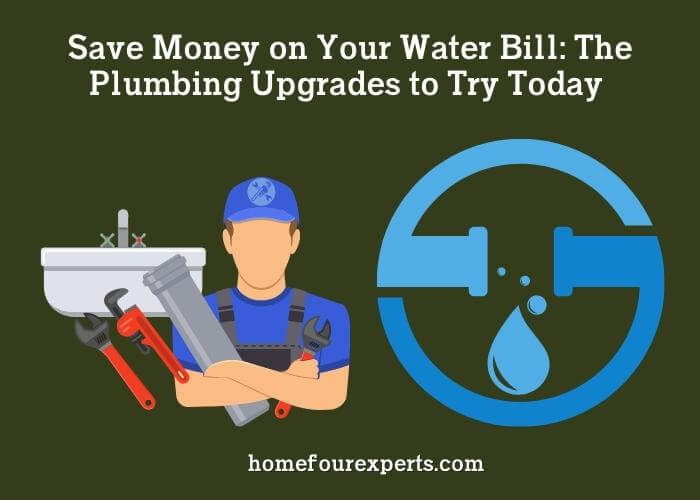Plumbing is one of the most important systems in any building, be it a residential, commercial, or industrial building. Plumbing systems help to supply clean water and remove waste water from the building.

Time, plumbing systems can wear out and require upgrading to ensure that they continue to function efficiently. In this article, we will discuss the importance of plumbing upgrades and the various types of upgrades that can be carried out in a building.
Why Plumbing Upgrades are Important
Plumbing upgrades are important for several reasons, including:
Improved Efficiency
Upgrading your plumbing system can help to improve its efficiency, leading to reduced water bills and lower energy costs. For instance, installing low-flow showerheads and faucets can help to reduce water consumption, while replacing old pipes with newer ones can help to reduce the risk of leaks and other plumbing issues.
Increased Safety
Old and worn-out plumbing systems can pose a safety hazard to building occupants. For instance, corroded pipes can release harmful chemicals into the water supply, while leaky pipes can cause mold growth and water damage, which can compromise the structural integrity of the building.
Compliance with Building Codes
Plumbing codes and regulations are constantly evolving, and it is important to ensure that your plumbing system is up to code to avoid legal issues. Upgrading your plumbing system can help to ensure that it complies with the latest building codes and regulations.
Types of Plumbing Upgrades
There are several types of plumbing upgrades that can be carried out in a building. Some of the most common upgrades include:
Pipe Replacement
Pipes are an integral part of any plumbing system, and over time, they can wear out and become corroded, leading to leaks and other plumbing issues. Replacing old and worn-out pipes with newer ones can help to improve the efficiency of your plumbing system and reduce the risk of leaks.
Fixture Upgrades
Upgrading your fixtures, such as faucets, showerheads, and toilets can help to improve the efficiency of your plumbing system and reduce water consumption. For instance, installing low-flow showerheads and faucets can help to reduce water consumption, while installing dual-flush toilets can help to reduce water usage.
Water Heater Replacement
Water heaters are an essential component of any plumbing system, and over time, they can wear out and become less efficient. Upgrading your water heater can help to improve the efficiency of your plumbing system and reduce energy costs. For instance, replacing an old and inefficient water heater with a newer and more energy-efficient one can help to reduce your energy bills.
Drain Cleaning
Clogged drains can cause a wide range of plumbing issues, including slow drains, foul odors, and sewage backups. Regular drain cleaning can help to prevent these issues and ensure that your plumbing system functions efficiently.
Water Treatment
Water treatment is essential for ensuring that the water supply in your building is clean and safe for consumption. Water treatment upgrades can include the installation of water filtration systems, water softeners, and other treatment systems that can help to remove impurities and harmful chemicals from the water supply.
When to Consider Plumbing Upgrades
There are several signs that can indicate it’s time to consider plumbing upgrades. Some of these signs include:

- Age of the plumbing system: If your plumbing system is over 20 years old, it may be time to consider upgrades, as older systems are more prone to leaks and other issues.
- Low water pressure: Low water pressure can be a sign of a clogged or damaged pipe, which may require replacement or cleaning.
- High water bills: If your water bills are consistently high, it may be a sign of a leak or other plumbing issue that requires attention.
- Rusty or discolored water: Rusty or discolored water can be a sign of corroded pipes, which may require replacement to ensure safe and clean water.
Types of Pipes Used in Plumbing Upgrades
When upgrading your plumbing system, you may consider different types of pipes. Some of the most common types of pipes used in plumbing upgrades include:
- Copper: Copper pipes are a popular choice for plumbing upgrades, as they are durable and resistant to corrosion. They are also relatively easy to install and maintain.
- PEX: PEX (cross-linked polyethylene) pipes are a newer type of pipe that is becoming increasingly popular for plumbing upgrades. They are flexible, making them easy to install in tight spaces, and they are resistant to corrosion and freezing.
- PVC: PVC (polyvinyl chloride) pipes are commonly used for drain and waste systems, as they are lightweight and easy to install. However, they are not suitable for hot water systems.
- Galvanized Steel: Galvanized steel pipes are a type of metal pipe that is coated with zinc to prevent corrosion. They are often used for water supply lines, but they can be prone to corrosion over time.
Benefits of Plumbing Upgrades
Upgrading your plumbing system can provide several benefits, including:
| Increased efficiency | Upgraded plumbing systems are often more efficient, which can help to reduce water and energy consumption and lower utility bills. |
| Improved water quality | Upgrading your pipes and fixtures can help to improve the quality of the water supply, ensuring that it is clean and safe for consumption. |
| Better performance | Upgraded plumbing systems often perform better than older systems, with improved water pressure and flow rates. |
| Reduced risk of plumbing issues | Upgraded plumbing systems are less prone to leaks, clogs, and other plumbing issues, reducing the risk of costly repairs and water damage. |
Frequently Asked Questions
How Long Do Plumbing Upgrades Typically Take to Complete?
The timeline for plumbing upgrades can vary depending on the complexity of the project, the size of the building, and other factors. Again, it’s best to consult with a professional plumber to get an estimate of the timeline for your specific project.
What Are Some Common Plumbing Upgrades?
Common plumbing upgrades include replacing old pipes with new, more efficient pipes, upgrading fixtures such as faucets and showerheads to more water-efficient models, installing low-flow toilets, and upgrading water heaters to more energy-efficient models.
Are Plumbing Upgrades Necessary?
While not always necessary, plumbing upgrades can provide several benefits, including increased efficiency, improved water quality, better performance, and reduced risk of plumbing issues. If your plumbing system is old or experiencing issues, it may be worth considering upgrades.
How Do I Find a Reputable Plumber for My Plumbing Upgrades?
It’s important to do your research and choose a licensed, insured, and experienced plumber for your plumbing upgrades. You can ask for recommendations from friends or family members, search online for reviews, or check with professional plumbing organizations in your area. It’s also important to get multiple quotes and compare them before choosing a plumber.
Can Plumbing Upgrades Help Me Save Money on My Utility Bills?
Yes, plumbing upgrades such as installing low-flow fixtures and upgrading to more energy-efficient water heaters can help to reduce water and energy consumption, leading to lower utility bills over time.
The Bottom Line
Plumbing upgrades are an essential part of maintaining a safe and efficient plumbing system. If you are considering plumbing upgrades for your building, it’s important to consult with a professional plumber to ensure that the upgrades are carried out safely and efficiently.
Upgrading your pipes, fixtures, water heater, and other components of your plumbing system can help to reduce water and energy consumption, improve the efficiency of your plumbing system, and ensure compliance with building codes and regulations. Regular maintenance and upgrades can also help to prevent plumbing issues and prolong the lifespan of your plumbing system.
If you want to how to keep your home safe and efficient? Here is the answer.
About This Writer

Hello, I am David Rowan. I am a professional contractor with 10 years of experience in home building, different tools used, construction, home remodeling, and other home improvement work. I have already built many custom homes and continued to do several woodworking projects along with how to deal with all categories of tools.